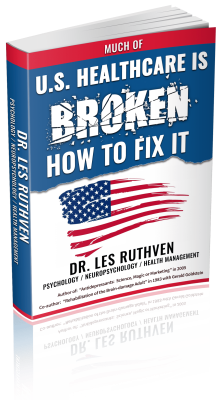Last updated on January 6th, 2024 at 08:33 am
When your research does not turn out well, make it look as good as you can
Published on line April 20, 2022
This research studied two very large cohort groups of depressed patients meeting the diagnosis of Major Depressive Disorder (MDD), one group having been treated with antidepressants and the other group diagnosed but not on drugs. The study investigated whether or not antidepressant medication had any effect on health-related quality of life (HAQoL). The later was divided into mental component summaries (MCS) and physical component summaries (PCS), the former on such measures as emotional distress and social functioning and the latter on physical functioning, bodily pain and vitality among others.
I must say I was a little suspicious of the soundness of the study when the first line of the report said in effect that the experimental literature has demonstrated the efficacy of antidepressant drugs in treating depression. I don’t know what experimental literature the researchers were reading but my reading of the experimental literature finds that these drugs are only slightly statically superior than inert placebo in reducing depressive symptoms. Moreover, when it comes to relapse of depression a depressed person is better off being treated with placebo than being treated with the drug! Be as it may let’s look at the study.
Both groups were assessed at baseline on the quality of life measures and were followed on quality of life over a 2 year period. Midway in the follow-up the drug treated group showed greater improvement in the mental component summaries (MCS) but there was no significant differences between the two groups in the physical component summaries (PCS). However, at follow-up the investigators found that antidepressants did not improve the patients’ HRQoL over time! The analysis showed no significant differences from baseline to follow up (2 years) on either MCS or PCS.
The researchers were certainly displeased with findings that antidepressant drugs did not improve these patients’ health quality of life. I certainly give the researchers credit for publishing negative findings even though they must have been very displeased with the results.
The fallback position for many antidepressant believers who grudgingly admit to negative findings of their deeply held beliefs
The researchers, after reporting the above bad news, came up with the following to perhaps save the day. “Another large meta-analysis (153 RTCs) shows that the combination of psychotherapy and drugs was significantly improving the patient’s quality of life compared to either treatments alone; in general, psychotherapy had marginally better effect when compared to pharmacotherapy but the combination was significantly better than either alone”.
In reading the experimental literature I have seen these combination studies referred to countless times, which are referred to in order to justify the use of antidepressant drugs in treating depression. The idea that this combination treatment—or any combination treatment—is more effective than either alone is fake and not real science. Those who endorse combination treatment should know better but apparently they do not. First, any treatment, drug or non-drug, has a real placebo effect, which must be subtracted from the therapeutic effect of the “treatment”. For example, psychotherapy and an antidepressant both have a placebo effect. In these antidepressant-psychotherapy combination studies psychotherapy alone has one placebo effect but combined treatment (psychotherapy plus the drug) has two placebo effects, psychotherapy and the antidepressant. No wonder combination treatment is more “effective” because there are two rather than one placebo effect. Probably psychotherapy plus aspirin is more effective than psychotherapy alone!




1 thought on “Antidepressants and health-related quality of life study”
Great article Dr. Ruthven! When will big Pharma wake up? Maybe when they stop making hundreds of millions on antidepressant sales…maybe when Hell freezes over?
Comments are closed.